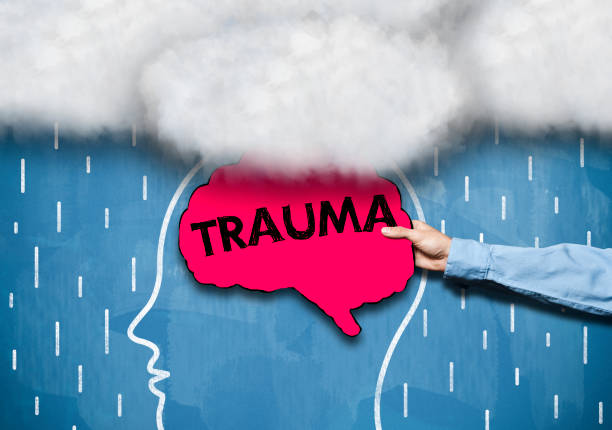Just hearing the word makes one feel violated, scared, Trauma on Mental Health and emotionally scarred. Opportunities and threats loom on the horizon for trauma’s impact on mental health in the future. A better knowledge of trauma and its impacts, along with innovative treatment options, provides hope for recovery and resilience, even though previous events can leave permanent scars.
One is going Beyond the Obvious to Define Trauma

Extreme experiences, such as war, natural catastrophes, or Trauma on Mental Health, are frequently linked to trauma. Having said that, the term does cover more ground. A variety of experiences, even those in childhood, can be traumatic, including abuse, neglect, bullying, seeing violence, and even some medical procedures. The most important thing is how the person experiencing the incident perceived it; if it was terrifying, overwhelming, or left them feeling helpless, then it can be traumatic.
2. How Trauma Affects Us: The Invisible Scars
There are far-reaching impacts of trauma. Emotions, in addition to bodily and behavioral manifestations, are possible. Some frequent emotional responses include nightmares, flashbacks, anxiety, and despair. Disruptions to sleep, persistent discomfort, and impaired immunological function are among physical symptoms of trauma. Substance misuse, self-harm, and social withdrawal are among behaviors that can develop from unresolved trauma.
3. Trauma and Mental Health Disorders: The Interconnected Web
Multiple mental health diseases have been found to be strongly associated with traumatic experiences. One of the most well-known is post-traumatic stress disorder (PTSD), which is marked by excessive vigilance, avoidance behaviors, and intrusive thoughts. Addiction, depression, anxiety, and personality disorders are all made more likely by traumatic experiences.
4. How Your Body Remembers: The Science Behind How Trauma Affects You
Neurobiology is providing new insight into how brain trauma manifests physiologically. Memory, emotion regulation, and decision-making are three areas of the brain that might change as a result of traumatic experiences. Many of the difficulties experienced by trauma survivors can be explained by these changes.
5. Ending the Cycle: Preventative Measures and Early Intervention

There is hope, even though trauma can have severe repercussions. The key to avoiding unfavorable outcomes in the long run is prompt action. An important part can be playing by making sure kids have somewhere safe to go when they need it, encouraging them to talk about tough things, and stepping in when abuse or neglect is happening.
6. The Healing Power: Time-Honored and Cutting-Edge Treatments
Many types of therapy have shown promise in assisting trauma survivors in making a full recovery. In cognitive behavioral therapy (CBT), patients learn to recognize and question unhelpful ways of thinking and behaving. Effective memory processing methods exist, and one of the most potent is eye movement desensitization and reprocessing (EMDR). Yoga, mindfulness, and other holistic methods are also beginning to get the credit they deserve for helping people overcome trauma.
7. How Technology Will Play a Role And Impact Trauma on Mental Health in the Future
New and more easily available treatment solutions are being developed by the Trauma on Mental Health industry through the use of technology. There is encouraging evidence that VR exposure treatment can assist people in safely facing their phobias. For those experiencing signs of trauma, there are mobile apps that can offer on-demand help and information. By facilitating remote connections between patients and therapists, teletherapy platforms help more people get the treatment they need.
8. Cultivating Coping Mechanisms: Promoting Strength Following Adversity
There is no endpoint to the process of healing from trauma. The key to successfully traversing this path is building resilience. Resilience is enhanced by having supportive connections, social networks, and engaging in self-care activities such as exercising and learning relaxation techniques. Helping people find their life’s true calling also gives them the strength to face adversity head-on.
9. Moving Beyond Individual Healing: Fostering Change in Communities and Societies

A multi-faceted strategy is necessary to address Trauma on Mental Health. It is crucial to establish trauma-informed communities. As part of this effort, those working in healthcare, education, and law enforcement will receive training on trauma and how to respond compassionately and supportively to trauma survivors. Reducing the overall impact of trauma also requires societal-level efforts to avoid abuse and violence.
10. A More Positive Outlook: Reconciliation and Progress in the Near Future
There will be obstacles and opportunities in the future of Trauma on Mental Health. People impacted by trauma have a better chance of recovery when there is more public understanding of the issue, better access to treatment, and the use of technology. We can help people heal, become stronger, and live fulfilled lives by making trauma-informed communities a priority, encouraging resilience, and focusing on early intervention.
